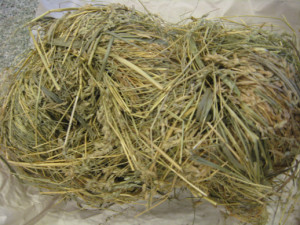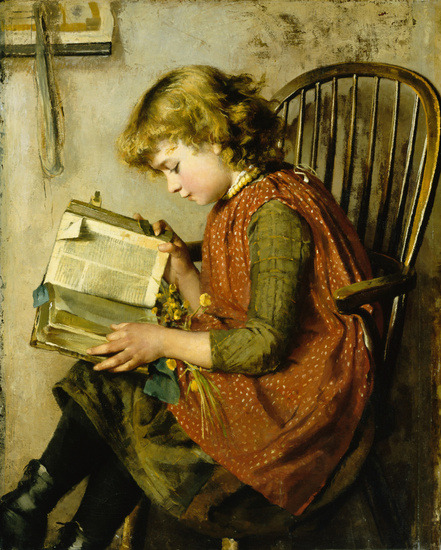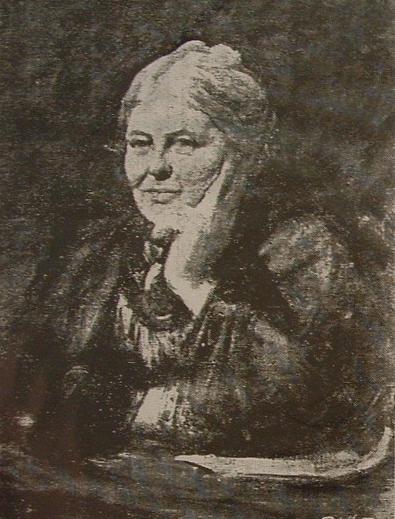Today the kids and I read the last chapter of the last book of the Laura Ingalls Wilder "Little House" series, The First Four Years. The boys have been totally engaged, enthralled, and driven to finish those books, even though they are, well. . . boys. My four-year old son Aaron even suggested that we begin the series again! I've loved them too, and I now understand why these books are considered classics.
In reading the last book, I was amazed at how difficult the first four years of Laura's marriage to Almanzo Wilder were. The death of a child, disease, several consecutive years of failed crops, a home that burned to the ground--it never seemed to end. In fact, there really was no "happy ending" to the first four years except for the hope of better days to come. One of the only surviving possessions from the fire that consumed their home was a glass bread plate with the words "Give us this day our daily bread" etched around the edge.
These words, taken from the Lord’s Prayer, were probably very deeply meaningful to Laura. One of the most memorable parts of the Little House series for me is in book six, The Long Winter. Due to relentless blizzards, the trains were unable to get through to DeSmet, South Dakota for months. The Ingalls family soon ran out of coal for heat and because lumber was not readily available, they turned to hay they had cut in the fall as their only source of fuel.
Pa and Laura sat in the cold lean-to, twisting hay into tight logs until their hands were numb and cut from the sharp hay. Then they came in only long enough to warm up before returning to the lean-to to twist more hay. When food ran low, their only source of nutrition was bread ground from the little wheat they had. Mary, Laura, Carrie, Ma, and even Pa took turns turning the crank coffee grinder to grind enough flour to make a loaf of course bread to last for the day's meals. This became their daily routine--twisting hay and grinding wheat all day long just to eat their daily bread.
After two years of uncertainty, trial, and triumph, we landed in our home just in time to start school and get settled. I had envisioned that once we got started with school that the uncertainty of the future would rest for a while. But the stresses, fears, and trials of life have marched in like a South Dakota blizzard and have relentlessly pounded our confidence in and hope for the future.
The trials and failures seem to come about as consistently as in Laura’s first four years, and as often as the plagues of Egypt. I swear, Moses must have been ready to give up trying by about plague number six, don’t you think? And in our day and age, most marriages that started like Laura’s first four years would have ended in divorce. There are some days, even now, when I wonder—if only for a moment—whether we’re strong enough to keep fighting the good fight.
Despite the difficulty of seeing a way out, I have begun to pray for something new. It began one day when I felt a strong desire to ask the Lord for his Grace. I was amazed how well that day went. I felt carried along, despite the difficulties that inevitably came. But for some reason, within a day or two I stopped asking for Grace. I don’t know why. Maybe we had a few good days in a row and I thought I didn’t really need Grace that day. Maybe I felt like I was bothering the Lord with my constant pleas.
Of course more trials come—along with their attendant fear. It’s a cycle we seem to repeat all too often. But this time, the Lord gave me new insight through my personal study in the classics. I've been reading The Screwtape Letters by C.S. Lewis. In letter VI, Screwtape writes the following:
There is nothing like suspense and anxiety for barricading a human's mind against the Enemy. He [God] wants men to be concerned with what they do; our business is to keep them thinking about what will happen to them.
Your patient will, of course, have picked up the notion that he must submit with patience to the Enemy's will. What the Enemy means by this is primarily that he should accept with patience the tribulation which has actually been dealt out to him—the present anxiety and suspense. It is about this that he is to say "Thy will be done", and for the daily task of bearing this that the daily bread will be provided.
This focus on future events often drains our mental, emotional, and spiritual resources that we need for the work of today. Each day can be a real struggle to keep it all together--especially when your mind starts to perpetuate your fears into the future. Anxiety, darkness, and depression are the inevitable result of our trying to bear a cross that isn't ours to bear yet. You're fighting phantoms then, and the battle is one you can never win. Screwtape would agree that “real resignation, at the same moment, to a dozen different and hypothetical fates, is almost impossible, and the Enemy does not greatly assist those who are trying to attain it.”
I believe that the real choice now is not between this or that internship. It is between the choice to struggle along by our own strength (the arm of flesh), constantly worrying about and trying to bear a thousand future crosses, or to call upon God daily, and even hourly for our daily bread, knowing that he will guide the future as he has the past.
Today was a hard day. I almost called my parents to vent, complain, and look for sympathy. But something stopped me. Instead, remembering the words of C.S. Lewis, I prayed and asked simply, “Heavenly Father, I need some bread. Can I please have some bread?”
I know that he knew what I meant. I was not looking for any more than just the help to deal with this one day. I sat down and opened my scriptures, knowing that He would speak to me through them. The page fell open to the exact words I needed to hear. I received an answer to my present need and I instantly felt peace. But I have no delusions about this being the end of my problems. I think I’ll have to ask for some more bread tomorrow.
You see, the Lord’s Grace is like manna for the soul. As the Israelites were wandering in the wilderness, the Lord provided daily portions of this miraculous “bread”. Each morning when they woke, they found manna lying on the ground to gather for the day’s food. But they were warned to only gather up enough for one day (except for the day before the Sabbath, in which case they gathered enough for two days). If they gathered more than they could eat in one day, they would find the next day that the manna stunk and was infested with worms.
There is a type and shadow in all things. If we could store the Lord’s grace up to last for weeks or months, our spirits would spoil. We would forget the real source of our strength and begin to imagine in our hearts that our success was due to something we did, and that we could secure future happiness by our own efforts.
That’s why God gives us only enough bread for today. He wants us to come back tomorrow and ask him for some more. He wants us to come back to him every day to gather His strength and to acknowledge gratefully the true source of our success or failure.
Indeed, there have been and will be days when the trials are so great, or our strength so little that we need to ask for “bread” every hour, every minute. On those days, the hymn “I Need Thee Every Hour” becomes the prayer of the heart :
I need thee every hour, most gracious Lord
No tender voice like thine can peace afford
I need thee every hour; stay thou nearby.
Temptations lose their power when thou art nigh
I need thee every hour, in joy or pain.
Come quickly and abide, or life is vain.
I need thee every hour, most Holy One.
Oh make me thine indeed, thou blessed son
I need the, oh, I need thee; Every hour I need thee!
Oh bless me now, my Savior, I come to thee.















